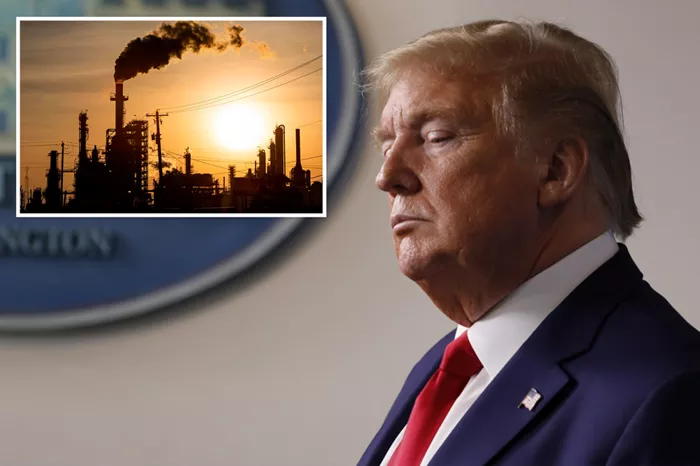Former President Donald Trump’s suggestion to impose a 25% tariff on Canadian and Mexican oil imports has ignited a firestorm of debate, with critics warning of dire consequences for the North American trade relationship. While some dismiss the move as political posturing, others caution that the potential fallout could significantly disrupt both domestic energy markets and international relations.
The proposed tariffs, which target oil imports from Canada and Mexico—two of the U.S.’s largest foreign oil suppliers—could have far-reaching implications for both the economy and the energy industry. U.S. oil producers have voiced strong concerns that a tariff on Canadian heavy oil would lead to higher consumer prices at the pump. This could have immediate consequences for consumers, with gasoline prices poised to spike if the tariff is enacted. Industry experts point out that U.S. refineries are specially designed to process heavier grades of crude oil, which constitute more than 60% of the country’s oil imports from Canada. A sudden price hike on this oil could disrupt refinery operations and inflate costs across the board.
Mexico, which accounts for 11% of U.S. crude oil imports, faces similar risks. Analysts warn that a tariff on Mexican oil could trigger retaliation, escalating into a broader trade dispute that would further destabilize the markets. As the peso continues to struggle, losing 2.3% against the dollar in a single day, the added pressure of tariffs could exacerbate Mexico’s economic challenges.
While the immediate effects of tariffs would likely be felt through higher costs for refiners and, ultimately, consumers—ranging from higher gasoline prices to increased heating oil costs—some see the potential for longer-term benefits. Supporters of the tariff push argue that such measures could serve as leverage to renegotiate trade terms and recalibrate the global oil market, though experts caution that the risks may outweigh the rewards.
The American Fuel and Petrochemical Manufacturers (AFPM) have already voiced their opposition, urging policymakers to reconsider any actions that could undermine the U.S.’s energy independence and competitive advantage in the global market.
In sum, while the proposed tariffs could serve as a bargaining chip in trade negotiations, their economic consequences—both in the short term and beyond—could be far-reaching, threatening the stability of an already fragile energy market. Whether the Trump administration will follow through with the proposal remains uncertain, but the debate is unlikely to subside soon.
Related topic:

